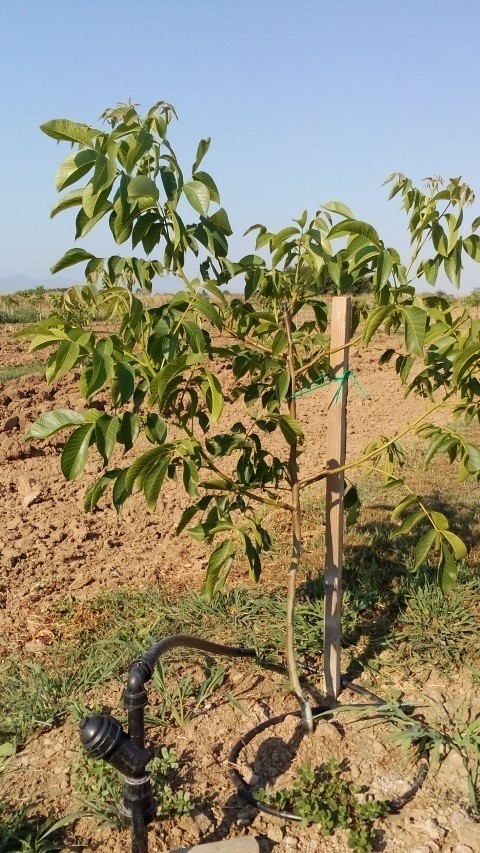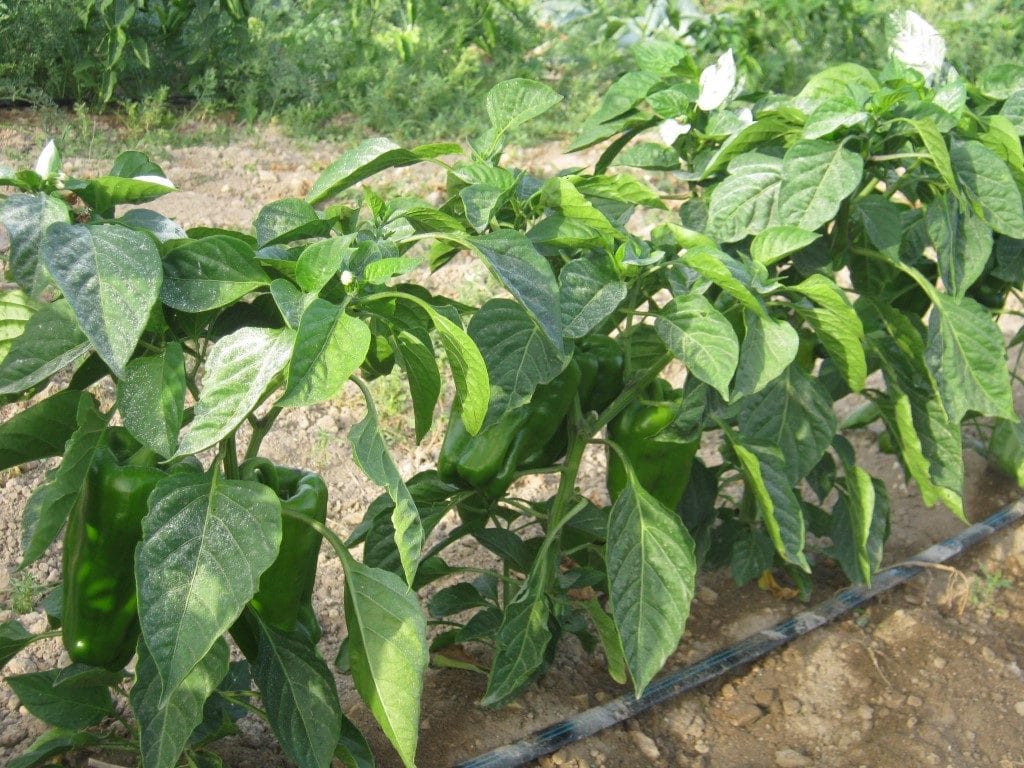EFFECTIVENESS OF MAX GROW
In order to measure and express the level of salinity both in water and in the soil, we use the scientific term ‘electrical conductivity’. For distinguishing purposes between a given sample of water or soil, the specified terms of ‘electrical conductivity of water’ ( ECw ) and ‘electrical conductivity of earth’ ( ECe ) are used respectively.
The most common unit of measurement of electrical conductivity is millisiemens (mS) or microsiemens (μS) ( 1.000 microsiemens = 1 millisiemens . The process of measurement requires a small sample of water or soil and an electrical conductivity meter or a chemical laboratory.

IRRIGATION
Electrical conductivity does not represent only the percentage of calcium carbonate or sodium in water and in soil, but it is an accurate indication of the level of all the metallic salts in general, such as magnesium, iron and many others which are essential for the growth and the development of the plants.
Soil scientists and technologists – agronomists claim that water with high electrical conductivity is highly recommended for irrigation as it is very rich in nutrients, even compared to rain water which was considered until recently ideal for the plants but it does not contain any metallic salts at all.
ELECTRICAL CONDUCTIVITY
The level of the electrical conductivity in water is subject to changes from time to time due to various factors. In summer time, when the requirement for water is higher and sea water penetrates into the aquifer, electrical conductivity increases as the level of salinity increases as well.
Furthermore the demand for water globally increases every year, having as a result the increase of the percentage of saline water. When saline water is used for irrigation and comes in contact with the soil and with the roots of the plants, the insoluble salts contained, accumulate into the soil, creating the phenomenon of saline soil.
LEVEL OF SALINITY
The level of the salinity of the soil increases constantly. This fact occurs mainly due to the following two reasons.
- Firstly, insoluble metallic salts accumulate every time the plants are irrigated with saline water, adding up each time.
- Secondly, fertilizers are very rich in metallic salts which are highly nutritious for the plants, but it is impossible for the majority of the ions of the metallic salts contained in fertilizers to pass through saline soil and reach the roots. Instead they accumulate together with the metallic salts of the irrigation water.
- Moreover fertilizers are not dissolved properly with saline water, having limited effectiveness and results.
All of the above are the most important factors that lead to the increase of the electrical conductivity of the soil. It is given that the electrical conductivity of the soil is usually 1.5 to 2.5 times higher in relation to the electrical conductivity of the water used for irrigation.
For example when the price of ECw is 2.4 mS, the price of ECe will be from 3.6 up to 6.0 mS.
 Using treated water for irrigation from MAX GROW electronic water treatment system all these problems are solved within a very short time period. The treated water has ions which apart from being dissolved up to 2 microns, carry a much higher electric charge.
Using treated water for irrigation from MAX GROW electronic water treatment system all these problems are solved within a very short time period. The treated water has ions which apart from being dissolved up to 2 microns, carry a much higher electric charge.
This enables them to dissolve all the existing salts in the soil removing all the white crust and allowing the roots to absorb all the nutrients from water and fertilizers. In addition fertilizers have a much greater effectiveness and dissolve at their maximum.
Since all the salt accumulation of the soil is removed, the electrical conductivity of the soil will decrease. MAX GROW decreases high electrical conductivity of the soil gradually by up to 90 %.
Every time, crops are irrigated with treated water, ECe decreases. Nominally at least five to six times of watering is required in order to have significant results and a decrease in the ECe measurements.
Practically, anyone will observe that the white crust disappears gradually and the soil becomes softer and “fluffy”.

MAX GROW does not decrease the level of electrical conductivity of the water as it does not add or withhold anything from its initial substance.
Unfortunately, the incorrect opinion which supports that the only effective method, is to decrease the level of the electrical conductivity of water, in order to use it for agricultural purposes, is considered by many, the only viable solution.
This equals with removing a very big percentage of metallic salts from water that are essential nutrients and are offered as a precious gift from nature itself.
